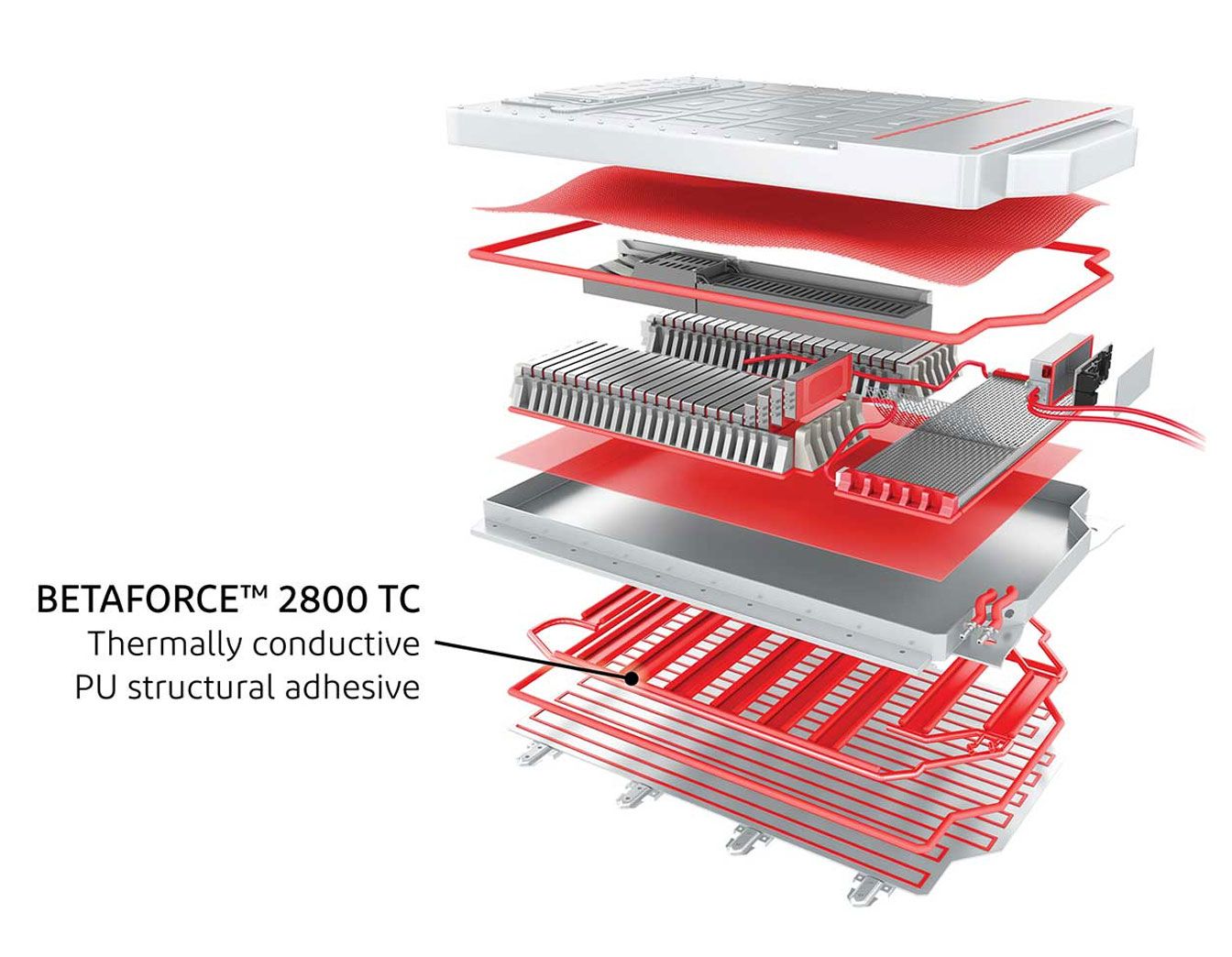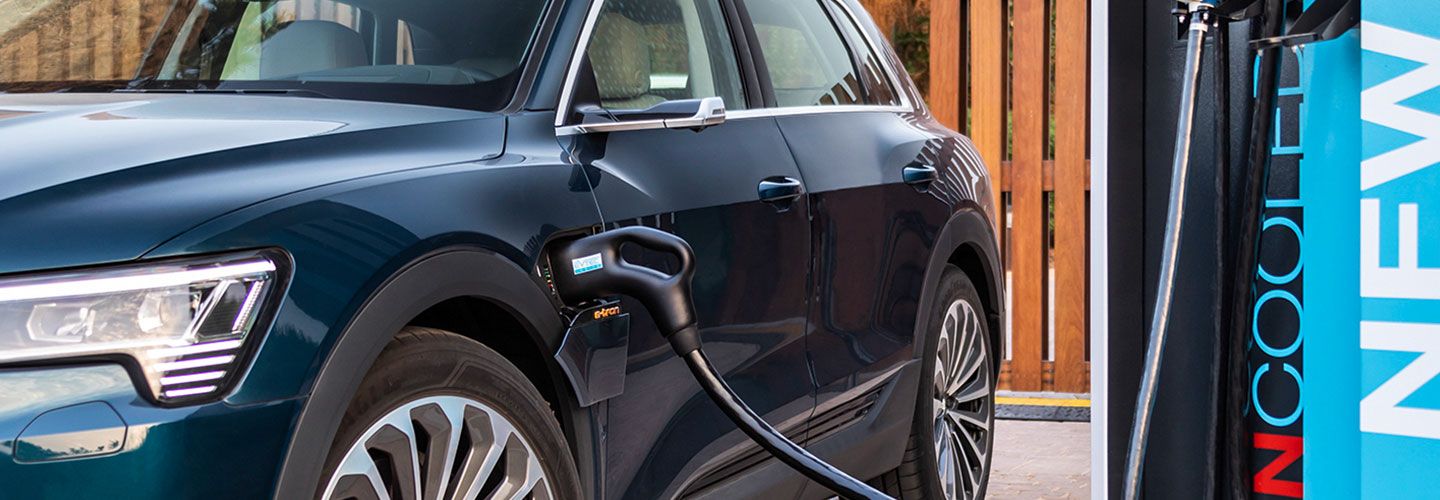Reducing “range anxiety” for Audi’s first all-electric SUV
Case Study

BETAFORCE™ 2800 TC thermal-conductive two-component adhesives were optimized for the Audi e-tron.
Project
DuPont collaborated with Audi engineers to develop a bonding material that could support super-fast charging for the Audi e-tron, Audi’s first all-electric sport utility vehicle (SUV). In addition to thermal management capabilities, the thermal-conductive adhesive also was optimized to help attain best-in-class driving range, lengthen module lifecycle, and improve performance.
Challenges
One of the biggest challenges in designing batteries for plug-in hybrid (PH) and electrical vehicles (EV) is thermal management of the battery pack. Battery components must operate in the optimum temperature window of 25°C during operations and below 60°C while charging.
Some drivers resist adopting EVs because of limited driving range, performance, and battery life. Audi’s goal was to ensure sufficient day-to-day capability without sacrificing performance.
Drivers don’t want delays because their EV takes too long to charge. Audi’s e-tron SUV needed to be capable of super-fast charging without generating excessive heat.
Solution
The new 95kWh Audi e-tron battery – optimized with BETAFORCE™ 2800 TC that conducts temperature both during charging and driving – delivers a range of more than 400 kilometers and supports super-fast 150kW charging, freeing drivers from “range anxiety.”
With a quieter-running electric drivetrain, the vibration inhibition properties of BETAFORCE™ 2800 TC were also important for user satisfaction. Handling also is improved by placement of the bonded battery in the floor of the passenger compartment, creating a low center of gravity.”
Production advantages are possible due to good shear thinning behavior that allows for fast dispensing needed to support high-volume production. Testing also confirmed that the material meets or exceeds heat-cure performance, mixer dwell times, pump pressures, and press-in forces.”

BETAFORCE™ 2800 TC helps manage the potential temperature difference between the cooling unit and the cooling plate.
BETAFORCE™ enables multi-material mix
BETAFORCE™ 2800 TC is the adhesive that made it possible to develop the first organic thermal-conductive bond for plug-in hybrid and electric vehicles.
It is an ideal choice for joining composites and other dissimilar materials in a variety of lightweight designs, including modular assemblies. It can be used to bond coated metals like steel to aluminum, carbon fiber panels to steel or aluminum, and sheet molding compound (SMC) to aluminum.
BETAFORCE™ polyurethane adhesives are two-component composite bonding adhesives that can be dispensed from bulk containers into standard meter mix application equipment. Formulations vary based on the vehicle production process and reflect variables such as viscosity, application temperature, conductivity, cure time, E-modulus, strength, and temperature.

